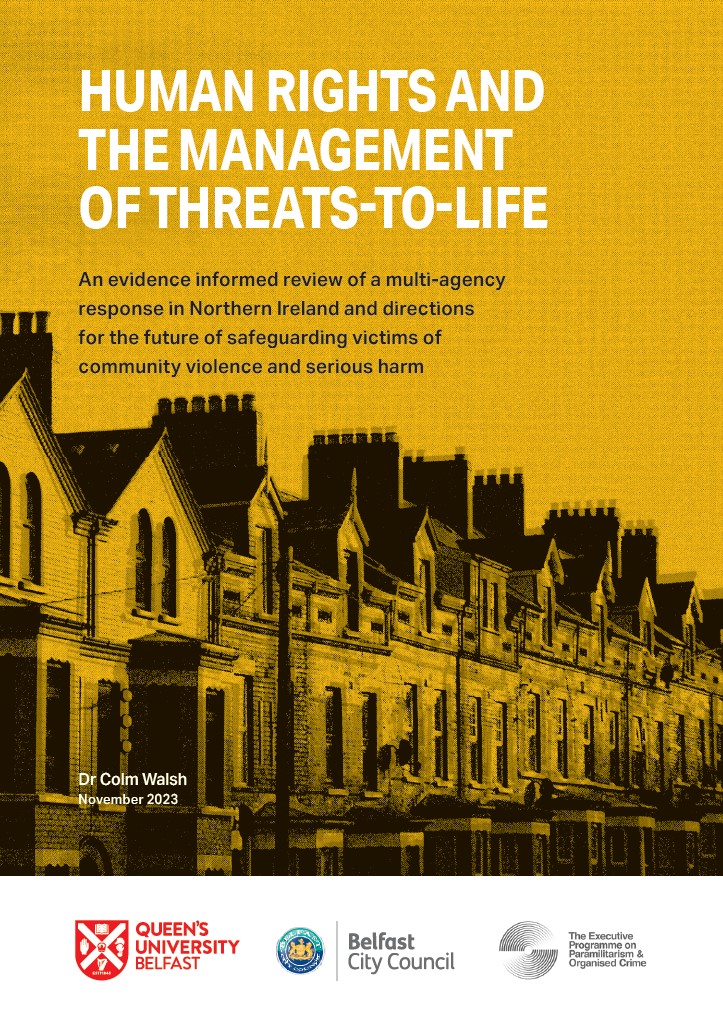A new report by Queens University Belfast (QUB), which was funded by this programme, highlights the need for greater collaborative working and a public health focus to tackle paramilitary threats and intimidation in Northern Ireland.
Despite being 25 years since the Good Friday Agreement, paramilitary activity and threats to life continues to impact victims and communities across Northern Ireland. The current system for handling threats to life is managed by the Police Service of Northern Ireland (PSNI) and it was found that the current practice of issuing warning letters often leaves victims traumatized and feeling abandoned. The report found that this process could benefit from a more consistent approach in the future.
The report notes that current issues around community trust in policing and the impact of ongoing paramilitary intimidation in communities has had an impact in reporting threats and accessing essential services.
Proposed options include reforming PSNI guidance on threats to life, extending coordination protocols to at-risk adults, formulating minimum standards for data collection, and establishing a centralised process for the threat management process.
The report suggests that a greater focus on partnership working and a public health approach (which involves early intervention and co-operation across professional sectors), aligned with a review of guidance for those deemed ‘at risk’ and a greater focus on data analysis and accountability mechanisms, will help to improve support for victims and increase community confidence in policing.
To read the report, please click the link below:
https://pureadmin.qub.ac.uk/ws/portalfiles/portal/527115081/Human_rights_fin.pdf

